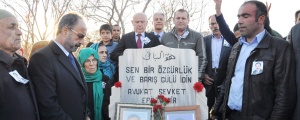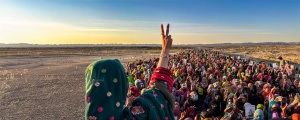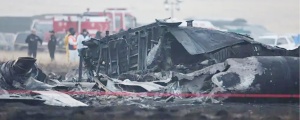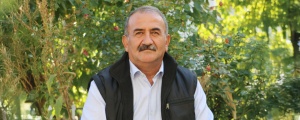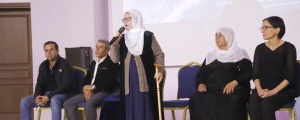Geography is not destiny*
Selahattin IŞILDAK yazdı —
-
“We have memories of war, terror, and pain. I wish we could also have memories of happiness, joy, and peace. I know that this too will happen soon."
"I am Mahrang Baloch. Currently, I am addressing all of you from Islamabad, Pakistan. I hope that wherever you are in the world at this moment, and if you possess humanitarian feelings, you will listen to our voice and raise your voice against the Baloch Genocide to help us. For decades in Baluchistan, thousands of our elders, youth, children, and women have been forcibly disappeared. Our people have been subjected to extrajudicial killings, forcibly displaced from their birthplaces, and a genocide is taking place where our lands are looted through military operations...
...As human beings, you can help us prevent the genocide of a nation. If you do not want another genocide to occur, you must help us try to stop this genocide against the Baluchi people."
This call was made by Dr. Mahrang Baloch, one of the leaders of the action led by Baluchi women, on December 26. The next day, we broadcasted this call through our television program, Alternative Agenda.
After a 13-day sit-in protest on December 6, 2023, a long march led by Baluchi women was initiated. The Baluchi people initiated the third-largest march in their history, stating "edi bese" (means "enough is enough" in Kurdish) against enforced disappearances, systematic torture, extrajudicial killings, and atrocities. The Pakistani state responded to the activists with batons, arrests, water cannons, and torture. They did not falter, did not step back; they continued to resist...
Persistently and resolutely continuing their resistance within the borders of Pakistan, the Baluchis marched to Islamabad, the capital of Pakistan, in late December of the past year, despite all obstacles, repression, and torture, and initiated a sit-in protest. Leading the protest were those who had lost their fathers, mothers, children, brothers, relatives, and loved ones in arrests, extrajudicial killings, enforced disappearances, and torture. Similar to the "Saturday Mothers" who resisted the massacres and disappearances in Kurdistan and Turkish cities in the 1990s, like Argentina's Plaza De Mayo mothers who spent years questioning the fate of their children. Like our mothers who today support the hunger strike protests of their children in prisons, just as the women in Kurdistan and Turkey did in the 1990s.
The action initiated by women expeditiously grew into a massive movement in all cities of Baluchistan. Shutters were closed, life was brought to a halt in many cities.
Support poured in from various cities in Baluchistan to the ongoing protest, entering its second month. The people supported this action everywhere. In our interview with Dr. Mahrang Baloch, which will be published soon in our newspaper, Yeni Özgür Politika, we heard the message that "repressive regimes would be overthrown through the joint struggle of Baluchi and Kurdish women on an international scale, and we were happy.
"Our message is to our Kurdish brothers and sisters. Our relationship with each other goes beyond ethnic and cultural similarities. Our relationship is based on a common experience of pain and oppression," said Dr. Mahrang Baloch, drawing attention to the fact that commonalities between peoples are not just about shared pain and cultural similarities. In the voice of Dr. Mahrang Baloch, whose father was also tortured and killed, we heard the resilience of our "Saturday Mothers" who still continue to resist without losing hope in the painful geography of state-perpetrated murders and enforced disappearances. In the eyes of Dr. Mahrang Baloch, we saw the tears of our mothers who never gave up asking about the fate of their children in the Plaza De Mayo squares. In Rojava, we saw the smiles of our women who fought against ISIS barbarism, sacrificing their lives.
In the slogans of the people walking in Baluchi cities, we saw the anger of our brothers and sisters who filled the squares by saying "We are all Armenians" against the killers of our brother Hrant Dink**, who has been gone for seventeen years.
Let's conclude this article with the words of Dr. Mahrang Baloch: "We have memories of war, terror, and pain. I wish we could also have memories of happiness, joy, and peace. I know that this too will happen soon."
* Briefly explaining the title: "Geography is destiny" is mostly a kind of proverb in Turkish, so "Geography is not destiny" is a counter-proverb. "Geography is destiny" implies that geographical factors play a significant role in determining the fate or outcomes of a place or people. In response, the statement "Geography is not destiny" serves as a counter-proverb, suggesting that while geography may influence events, it does not dictate an inevitable fate. It emphasizes the idea that human actions, choices, and interventions can shape outcomes, challenging the notion that geography alone determines destiny. That's the reason why I chose the topic of the article "Geography is not destiny".
** Hrant Dink, a well-known Armenian journalist, assasinated by state forces on January 19, 2007, in Istanbul.
